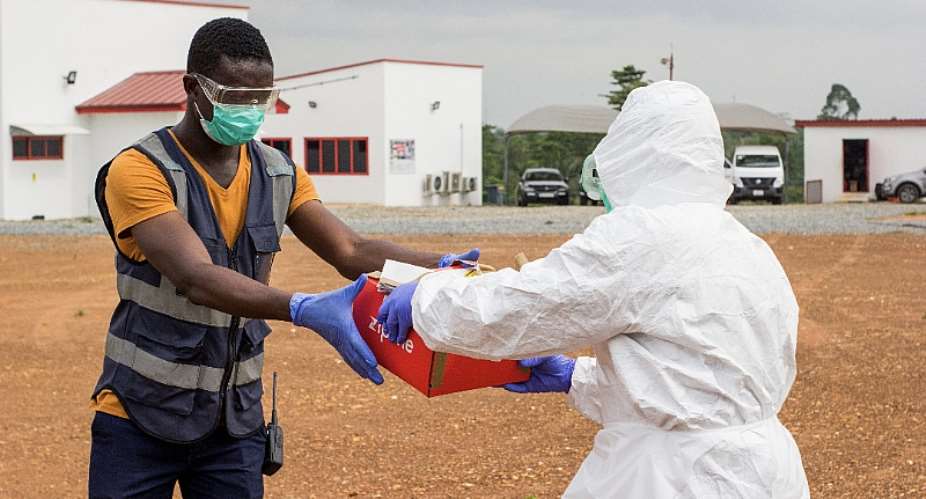Brazzaville, 23 April 2020 – Public health systems in Africa are coming under severe strain as the unprecedented COVID-19 pandemic persists. But as countries battle to bring the outbreak under control, efforts must also be maintained on other health emergencies and progress made against diseases such as malaria or polio preserved, the World Health Organization (WHO) urged today.
Prior to the arrival of the novel coronavirus in Africa, WHO was stressing the need for countries to ensure the continuity of routine essential health services. An overburdened health system not only undermines the effectiveness of the response to COVID-19 but may also undermine the response to a whole host of preventable threats to human health. Even brief interruptions of vaccination make outbreaks more likely to occur, putting children and other vulnerable groups more at risk of life-threatening diseases.
“I urge all countries to not lose focus on their gains made in health as they adapt to tackle this new threat,” said Dr Matshidiso Moeti, WHO Regional Director for Africa. “We saw with the Ebola Virus Disease outbreak in West Africa that we lost more people to malaria, for instance, than we lost to the Ebola outbreak. Let us not repeat that with COVID-19.”
Religious leaders join COVID-19 fight in Africa
“You can pray only if you are alive,” quips Abdallah Cissé Djiguiba, one of the grand imams in Cote d'Ivoire. Several African countries have banned gatherings and locked down cities and towns to suppress the spread of COVID-19. With places of worship shut, virtual platforms are not just linking churches and mosques with their congregation but providing space to convey health and safety messages on the virus.
In Cote d'Ivoire, gatherings were banned and movement restricted on 16 March. Two days later the country's council of imams closed mosques, a move that 62-year-old imam Cissé said was not without pain. Friday prayers and major religious events draw up to 6000 congregants at the Salam Mosque in Cote d'Ivoire's commercial capital Abidjan where he leads sermons. “We understood that we have to preserve lives. Praying at home also has its meaning and importance,” he notes.





 This IMANI job no dey pap; the people you are fighting for are always fighting y...
This IMANI job no dey pap; the people you are fighting for are always fighting y...
 Prof. Naana Opoku-Agyemang has changed; you can see a certain sense of urgency –...
Prof. Naana Opoku-Agyemang has changed; you can see a certain sense of urgency –...
 MFWA Executive Director slams Akoma FM for engaging in ‘irresponsible’ media pra...
MFWA Executive Director slams Akoma FM for engaging in ‘irresponsible’ media pra...
 ‘Women must become millionaires too’ — Prof Jane Naana on establishment of Women...
‘Women must become millionaires too’ — Prof Jane Naana on establishment of Women...
 Some believe only in Ghanaian votes, not Ghana — Kofi Asare jabs politicians
Some believe only in Ghanaian votes, not Ghana — Kofi Asare jabs politicians
 Plan to make BEST sole aggregator of Sentuo Oil Refinery will create market chal...
Plan to make BEST sole aggregator of Sentuo Oil Refinery will create market chal...
 2024 elections: I can't have the man I removed from office as my successor — Aku...
2024 elections: I can't have the man I removed from office as my successor — Aku...
 2024 Elections: Immediate-past NPP Germany Branch Chairman garners massive votes...
2024 Elections: Immediate-past NPP Germany Branch Chairman garners massive votes...
 Gov’t focused on making Ghana energy self-sufficient, eco-friendly – Akufo-Addo
Gov’t focused on making Ghana energy self-sufficient, eco-friendly – Akufo-Addo
 April 25: Cedi sells at GHS13.74 to $1, GHS13.14 on BoG interbank
April 25: Cedi sells at GHS13.74 to $1, GHS13.14 on BoG interbank
